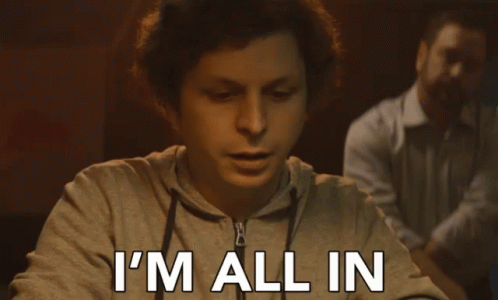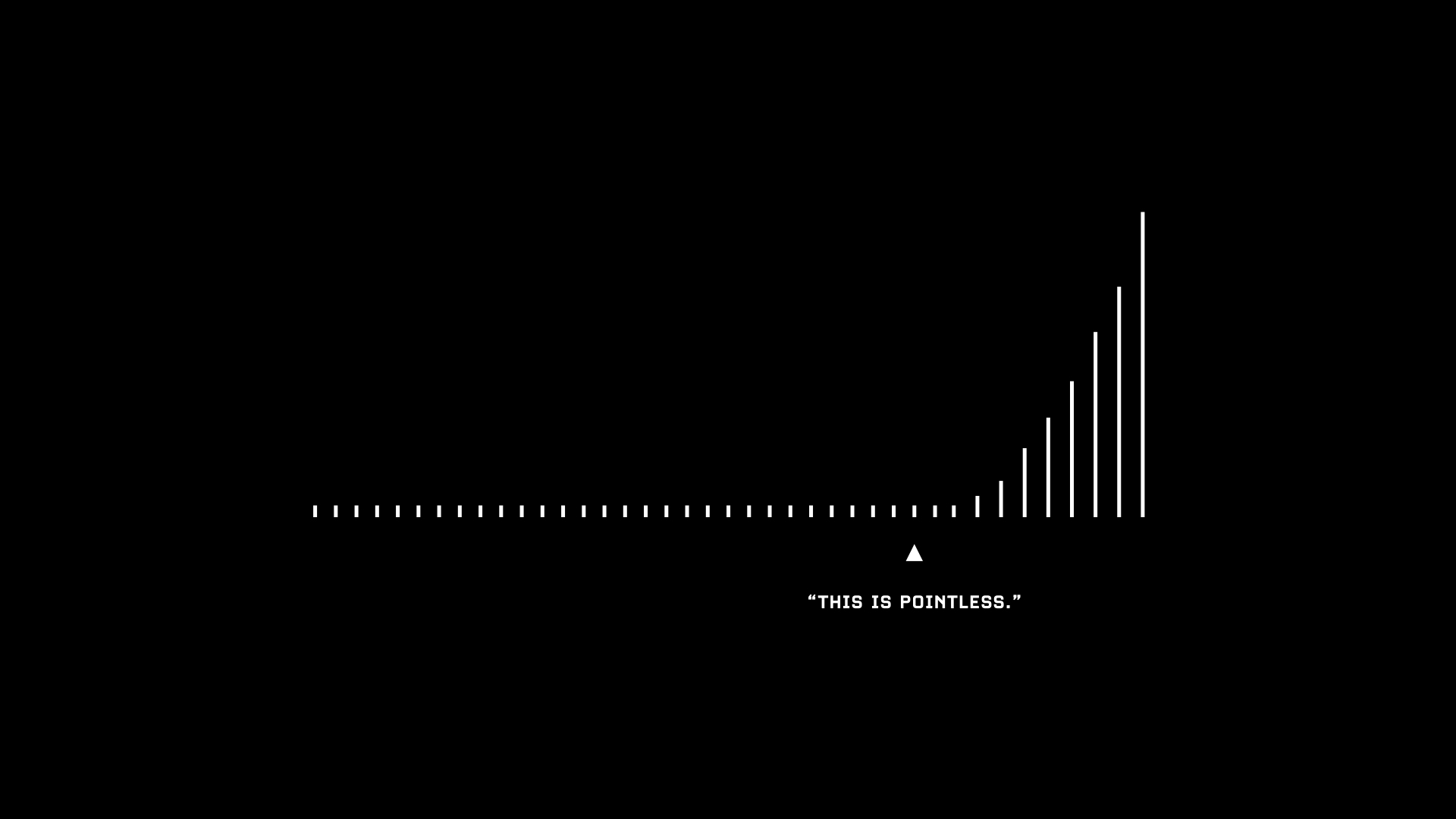Introducing: Code with Benny

Hi. I’m Benny 🙂. I’m a 24 year-old “digital nomad”, and this year I left my US startup tech job in Business Operations, moved to Bali, and started learning to code. It was one of the scariest things I’ve ever done.
Why did I do it?
Here is the framework around making this decision that took me ~2.5 years to build:
Reason #1: Value accrual
While working in the US tech industry (specifically, for a fully-remote Seed → Series A insurtech startup), I noticed some trends around value accrual to builders in tech and how my own skillset fit in.
- Very early-stage companies (1-10 people) only need to do two things well: build and sell.
- Value in early-stage companies (compensation, equity, and decision-making power) primarily accrues to those who build the product (engineers, product managers, data analysts), and secondarily to those who sell it.
- As a generalist, I have a strong background in communication, leadership, relationship building, and project management, but these skills aren’t essential at the start.
- I think I know how to sell (or at least, know how to get myself up to speed quickly). But I don’t have much practice building software products, and the latter requires a much deeper time investment.
Reason #2: Lifestyle
Coding also allows me to optimize my life around lifestyle elements that I want to have:
- Flexibility over my schedule: the software industry generally allows employees more say over their schedule/hours allocation, so long as “output quotas” are met.
- Geographic flexibility: in most cases, the job can be done remotely
- Good pay 🙂
- Supply and demand will work in my favor - there is usually a scarcity of engineers in the market, and even more so of engineers that can build full-stack products. Consequently, I won’t have to spend as much time recruiting as I might in other industries.
Reason #3: Learning
I need to optimize my time for learning, and learning quickly, and I think the earlier I run the experiment on whether I can do so most effectively on my own (self-teaching), the better.
Why do I need to optimize my time for learning? I’ve identified two things in my life that bring me meaning/joy: learning something new, and helping others. I found that periods in my career where there was a predominant feeling of stagnation have coincided almost 1:1 with not learning much. In addition, there is almost like a “joy multiplier” when the skills I learn can directly funnel into helping others more effectively, and as such, finding something that links the two feels really important to me.
I also want to run the experiment of whether I can optimize my learning pace and schedule better than a full-time job or a course schedule managed by someone else (e.g. University, bootcamp, etc).
Reason #4: Timing
I will never have the chance to do this as easily at any other point in my life. I’m single, with no dependents, a good passport, and some financial runway. On top of this, it’s likely that my responsibilities towards others will start to rapidly increase in 5+ years given goals that I have to start a family and settle into a long-term community in New York City/San Francisco.
My experience with coding so far: I have a B.S. in Physics, which allowed me to get moderately acquainted with software development, but coding and I have never had the chance to become close friends.
So I decided it’s best to take matters into my own hands. I could do this slowly, by doing something like teaching myself software in the evenings, or I could combine my desire to get technical with the realization that this is the best point in my life to do something more adventurous (per Reason #2 in my framework above), and go all in.

I’m lucky to have been able to save around a year’s worth of Bali-level-costs runway after working the past two years, and will use this to keep me afloat while I enact My Plan.
My Plan
My Plan will consist of two workstreams in two different Phases.
Phase 1: 100 days of coding + written content
Workstream 1: Coding
I am embarking on a 100 days of coding challenge, starting with learning Python! A couple inspirations: Replit’s 100 Days of Code - The Complete Python Course, and my friend Tranqui.eth. I’ll be releasing blogs in the next few days on my Coding Path, which is the bootcamp I’ve built for myself.
Workstream 2: Content
Will include:
- Daily log updates on https://www.bennyrubanov.com/tag/100daysofcoding/ covering what I did, what I learned, and what resources I used
- Weekly longer blog post dive on what I learned and takeaways
- Every once in a while a special post on miscellaneous topics (curated resources for building companies, reflection pieces, thought pieces, etc). See below for more details on potential topics 🙂
- Maybe some video content?? TBD
Phase 2: Introduce more video content + build products
Workstream 1: Coding
Continue coding with the skills I’ve gained from Phase 1, now with the goal of building value-add software products.
Workstream 2: Content
Begin editing and uploading footage to YouTube that I’ve recorded of my coding journey in Phase 1.
Closing Thoughts
There is a strong possibility this whole thing doesn’t work out - that I spend a year struggling to learn to code, and come away with it having not really been successful in building products that provide value to others, while creating a brand around myself.
But I think the key thing I need to remind myself often is that this is an experiment - whether it works or not doesn’t matter - what matters is that the inputs are of quality.
One of my closest friends, Nikitha, suggested a way to look at this that beautifully reinforces this idea. She asked me:
Imagine yourself looking back at how this year went a year from now. When you evaluate how the year went, what are the criteria you can set to have been successful no matter what happens? Figure those out now and work towards those.
Why I love this idea is that, in a sense, you are ensuring your own happiness by setting criteria that don’t focus on outputs/outcomes but rather bake in the reminder that your inputs are all that matter.
So what are my criteria? What do I want to happen such that I am happy with how this year goes no matter what? Here is the start of that criteria list. This will be evolving over time. I will:
- Be kind to myself in the face of failure. If something goes wrong, I’ll remember that it’s not a setback; it’s more data from an experiment that ended. And data can be useful 🙂
- Do something to work towards my goals, however small, every day. If that means resting, then I will allow myself to rest.
- Not be afraid of commitment. I will stick with what I’m working on past multiple setbacks and failures.
- Remind myself to be patient often - I will remember that results are often compounding, but I can expect not to see any for a while.
- Let myself enjoy the ride along the way. Life isn’t work, and I will remember this while finding balance between enjoyment and inputs towards my career goals.

Thank you for following along on this journey. It’s going to be a bumpy ride, but I’m glad you’re coming along 🙂
What kind of content you can expect to see from me
- My 100 Days of Coding journey
- Coding roadmaps and resources
- Curation of various tools, articles, and resources I’ve come across for building startups, productivity, building a brand, and more (I have over 5000+ bookmarks saved over the past 4 years diving into tech!)
- Frontier science deep dives
- Productivity tips and tricks
- General finance tips: crypto taxes, how I manage my money, and my runway planning process
- Reviews of media (books/movies/articles) that I consume
- Digital nomadism/remote work tips
And thought pieces on any other topics I find interesting, such as:
- Cool startups
- Personal health, fitness, and emotional regulation
- Job hunting
- Chess
- Crypto
- AI/ML
- Space-tech
- Learning languages
- Science Fiction and various genres of book reviews
How to follow along!
- Follow me on twitter: https://twitter.com/BennyRubanov
- Subscribe to my newsletter: https://www.bennyrubanov.com/
- Follow along my 100 Days of Coding journey here
Cheers! See you soon 🙂

Member discussion